The rule of law is already being undermined in the presidential transition
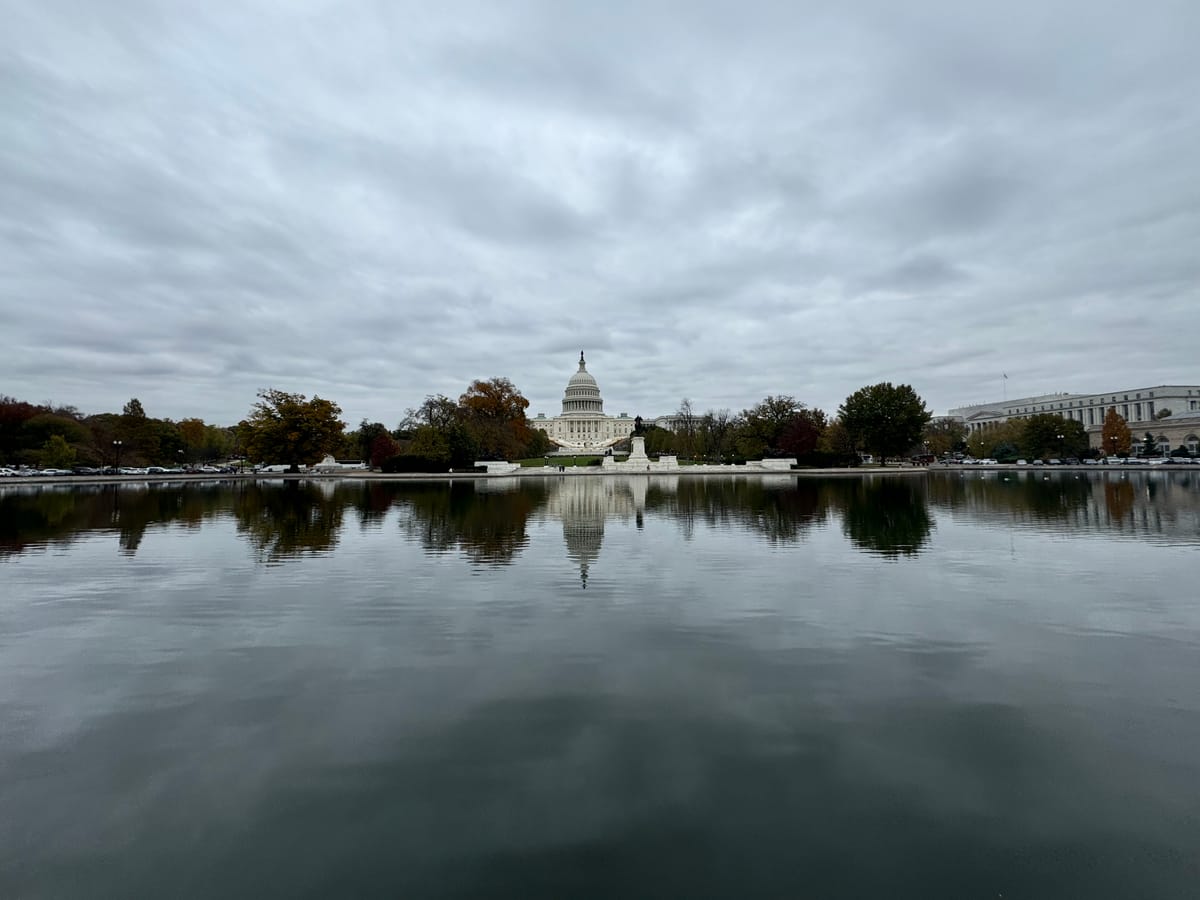
Good afternoon from Washington! Thank you for subscribing. Please upgrade to a paid membership and, if you can, directly support both this work and my family as I continue to figure out what’s next.
Your support means I can continue to make CivicTexts free and open to all, not put the information, insight, and analysis behind a paywall. I am also reconsidering, however, how safe and sustainable this will be in 2025 if I am not affiliated with an institution. The threat model has changed for me and my work. Stay tuned.
Blue skies, looking at me
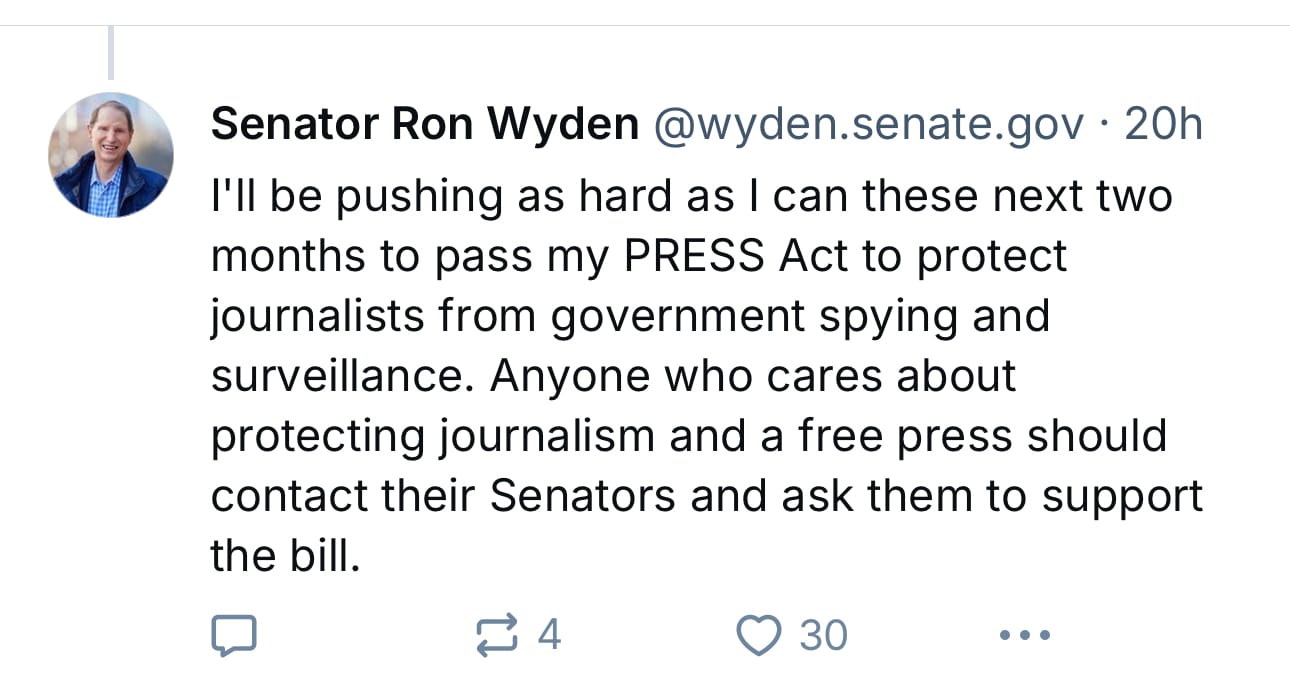
Speaking of open information that’s not behind a paywall, I’m watching Bluesky take off in Congress.
When I created a “starter pack” of Members, I found dozens have now joined, including a growing number of official accounts that have verifed their authenticity using the domain name system.
I’ve been on there since last spring, but there’s just been an infection point. It’s my favorite social platform now, not least because adding links and writing about government doesn’t lead my posts to be throttled.
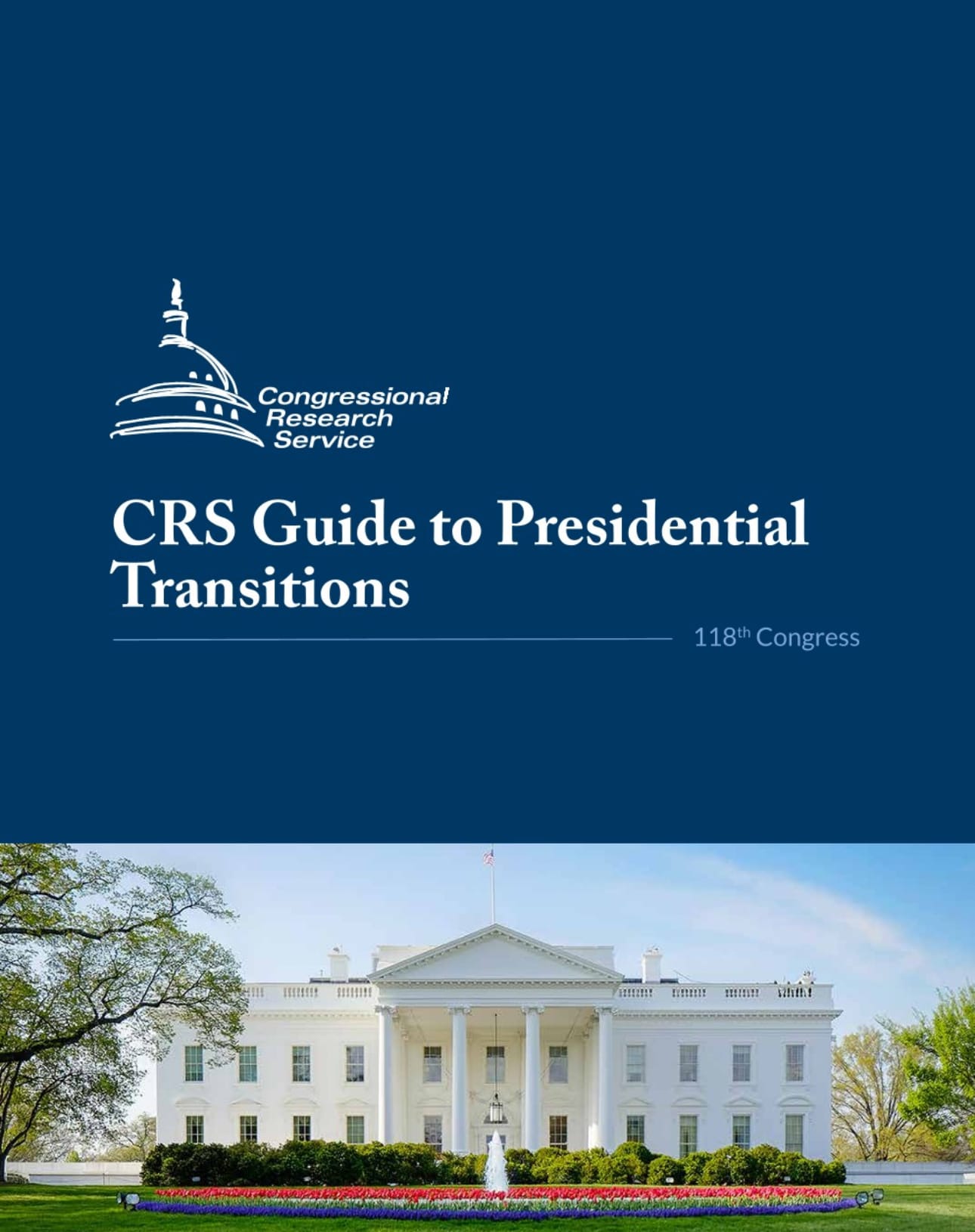
Explaining Transitions
While the presidential election in the United States may have been called two weeks ago, the transition of power is only beginning.
if you’re curious about how it works, the good folks at the Congressional Research Service just published an excellent new guide to transitions for Members of Congress that we all can benefit from as well.
The resource has not been well-publicized nor effectively promulgated by CRS, unfortunately, which still has a closed culture, but I hope it’s of use to you and others.
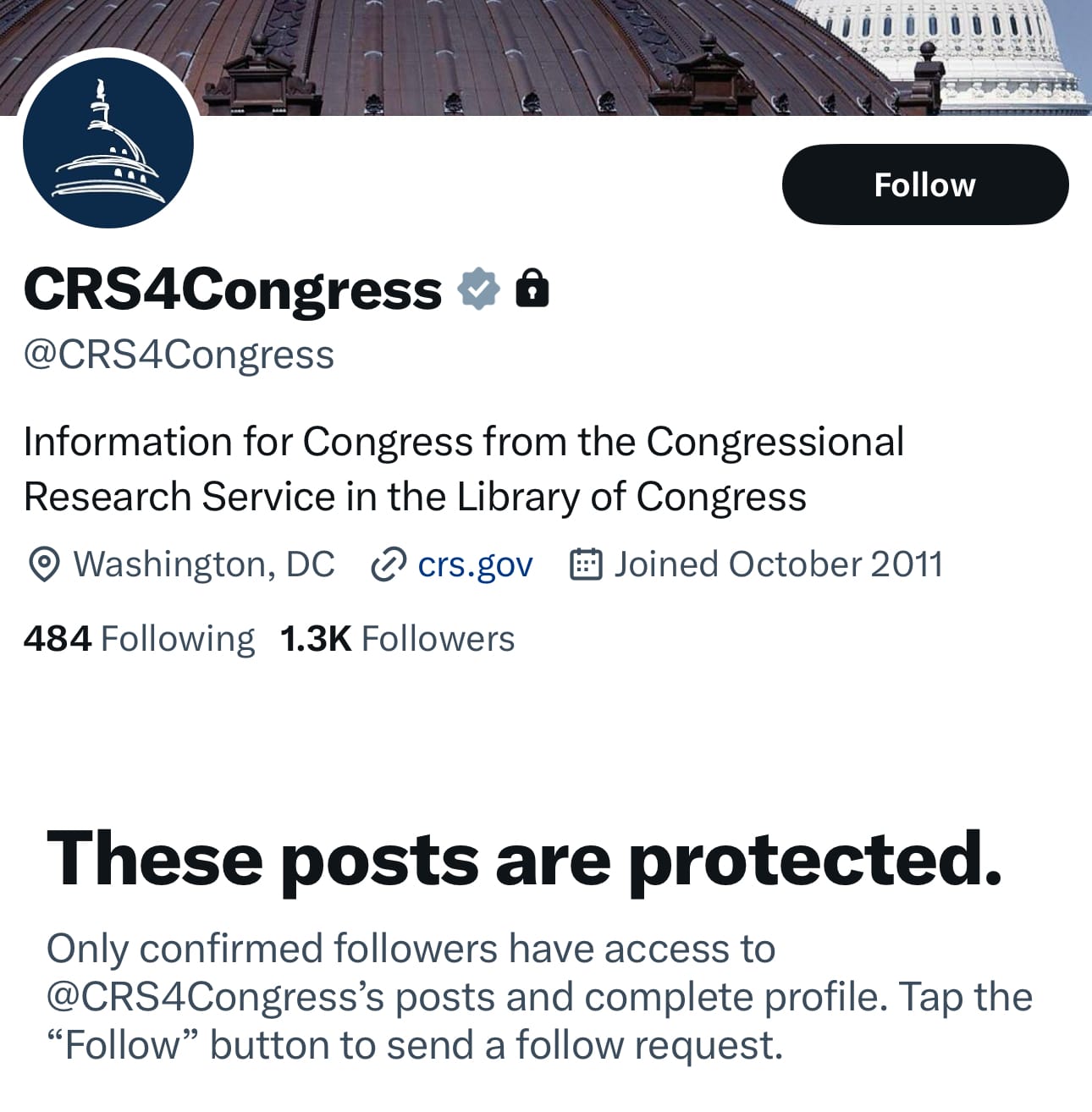
Wither open government in 2025?
As you know, the U.S. government (quietly) asked the American public what should be in the sixth National Action Plan for Open Government for the Open Government Partnership.
They received 47 comments to the GSA’s Federal Register notice, which are all posted to Regulations.gov — unlike the last cycle of comments, which this White House continues to keep secret in conflict with basic open government principles and the Partnership’s policies.
My response, which combines strands of my thinking and work from the last decade is online, as a PDF.
I have no expectations at this point for any of these recommendations to make it into policy.
The approach the Biden-Harris administration took to open government failed, at least as measured by domestic impact.
I expect the members of the open government advisory committee to be dismissed or to resign next year, after the next administration refused to accept and implement the results of the co-creation process this winter.
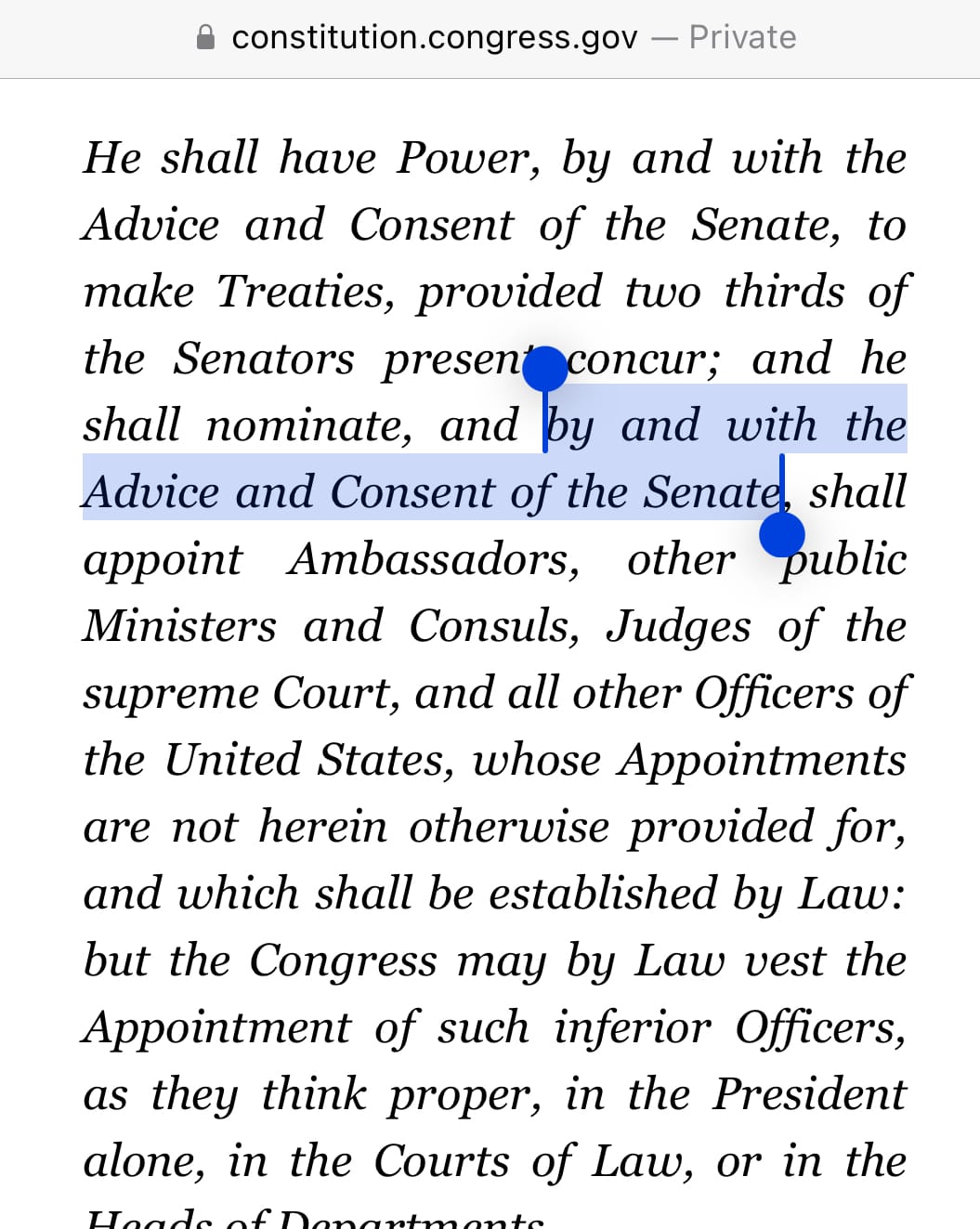
The Senate must not abdicate its Constitutional duty
Last week, the Senate did something important when it confirmed a new Office of Government Ethics to act as a bulwark against corruption.
That Office doesn’t have the power it needs, however, and the signals I’m picking up elsewhere are worrisome.
“Anticipatory obedience” in media is meeting anticipatory disappearance in government: The Project of Government Oversight reports the CIA Inspector General & Office of the Director of National Intelligence are leaving their roles ahead of Trump’s inauguration.
It’s a grim sign. I had hoped these IGs would stay to hold the line: Inspectors General are one of the most important internal bulwarks against fraud, waste, and abuses of power.
So is the Justice Department. On that count, Public Citizen has filed a complaint, encouraging the Justice Department & the Office of Government Ethics to direct the Trump/Vance Transition Team to comply with the ethics requirements of the Presidential Transition Act — and enforce the law if they continue breaking it.
I wish I had more hope left in U.S. Attorney General Garland’s willingness to use his power to check violations of the law, but his failures to hold Trump accountable has left me without much of it.
When I warned American winter is coming, this is what I meant. In a real sense, it’s already here.
Remember the frame: Can what just seems to have happened be confirmed? Is it unprecedented? Is the recent act of governance normal by the usual standards? Is what just happened a threat to democracy?
Trump has demanded the Senate confirm his nominatins theough recess appointments, bypassing its Constitutional role.
Recess appointments are not unprecedented, but a President-elect demanding that his cabinet be filled within them is.
It is not normal to nominate historically unqualified candidates who do not have relevant experience beyond loyalty to a president.
It is a threat to American democracy to seek to evade the Senate’s constitutional role.
The first test is happening right now, as Trump pressures Senators to confirm former Congressman Matt Gaetz and pressure Members of the House Ethics Committee not to disclose a damning ethics report about Gaetz’ conduct. Ranking member Rep. Susan Wild said the report “should certainly be released to the Senate, & I think it should be released to the public, as we have done with many other investigative reports in the past." The Committee will meet and vote tomorrow.
Regardless of that decision, Americans need to see the Senate act as a bulwark against tyranny and maladministration by refusing to confirm unfit Cabinet nominees without holding hearings, and to call Garland and press him to uphold the Presidential Transiton Act.
This week, Senator Schumer appears to be focused on confirming judges, not checking corruption or the looming threat Trump poses to our system of democratic governance. It’s beyond discouraging.
As Charlie Savage reported, “The demand to weaken checks and balances and take for himself some of the legislative branch’s usual power underscored Mr. Trump’s authoritarian impulses.”
“While there is no obvious legal obstacle to Mr. Trump’s request, it would be an extraordinary violation of constitutional norms. There is no historical precedent for a deliberate and wholesale abandonment by the Senate of its function of deciding whether to confirm or reject the president’s choices to bestow with government power.”
If the Senate allows Trump to appoint a cabinet without Congressional consent, it would be 'an absolute abdication of their Constitutional power.”
If the Senate allows Trump to continue the transition without submitting a legally mandated ethics plan for the president and background checks for each national security nominee, they are abdicating power right now, not in 2025.
I wish it were surprising that President Biden has remained largely silent about this overt attack on the Constitutional role the Senate plays and President-elect Trump’s demands, given his decades of service in the chamber and obligation to uphold his oath of office.
His staff is tweeting about his visit to the rainforest and meetings at the G20 in Brazil and it feels so limp, as if we don’t all know that the United States is about to change its positions and behavior.
President Biden’s serial failures to defend American democracy this term began accumulating from the moment he didn’t fully cooperate with the Justice Department and Congressional probes of Trump’s auto-coup attempt, conspiracy, and failed putsch.
It kept going through the half-hearted attempt to get voting rights, democracy reform, and anti-corruption legislation through Congress at the end of 2021, and then through a failed approach at open government that utterly neglected mitigating the flood of misinformation and lies that swamped this election. Democracy can drown in bullshit and inaction, too.
Both Biden and Vice President Kamala Harris, whose background as both a U.S. Senator and California Attorney General remains relevant — can and should publicly recognize that Trump will be the duly-elected President AND call on him to avoid the appearance of corruption by disclosing his taxes, divesting from his conflicts of interest.
They should be calling on him to properly vetting all of his national security nominees with background checks by the Justice Department, follow the law by submitting an ethics plan, and sign ethics agreements with the General Services Administration to protect our national security.
Their continued silence this week in the fact of a looming authoritarian threat to the Constitution would be an abdication of their oaths of office.
As my former colleague Daniel Schuman observed, that’s the term of the moment.
“Abdication is the right word: without the Senate, the presidential power would become imperial. Noted stand-up philosopher Melvin J. Brooks once expounded that ‘It's good to be the king.’ But not so good for his subjects.”



